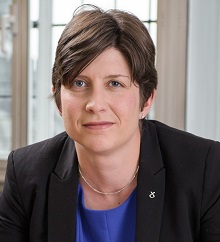Alison Thewliss says Westminster must do more to help organisations continue to carry out vital work within communities
The critical work undertaken by the charitable and voluntary sector has been brought into sharp focus during the Covid-19 pandemic. Organisations of all shapes and sizes have been supporting communities throughout the pandemic, as highlighted in Scotland and across the UK by the #NeverMoreNeeded campaign. It’s right that we recognise the monumental efforts undertaken by NHS and other public sector staff during these tough times, but we must not forget about the third sector which, despite a myriad of challenges, continues to adapt its services to ensure that communities and individuals remain supported.
Throughout the pandemic, the voluntary sector has been instrumental in ensuring our communities are resilient enough to weather the many emerging challenges – be it delivering food security, tackling rough sleeping, combating loneliness, improving digital connectivity or finding safe places for those experiencing domestic abuse.
The voluntary sector has not been immune to the various pressures brought about by coronavirus. We are living in a time where demand for some services has increased dramatically while income sources have been restricted. In turn this has led to many charities fighting for their own survival. According to figures from the Office of the Scottish Charity Regulator (OSCR), 79% of charities who receive income from donations and fundraising reported a decrease in giving. Likewise, 83% of charities who receive income from trading reported a decline from this source.
Indeed, many of the conventional methods for fundraising: be it sponsored marathons and other challenges, proceeds from charity retail shops, regular events and other funding streams besides have been closed off as a result of government restrictions, making it extremely challenging for groups to sustain themselves. At the same time charities have been involved in organising food parcels, collecting prescriptions, arranging contact time and transport for vulnerable people, and countless other activities during these tumultuous times.
In my own constituency of Glasgow Central, voluntary organisations continue to work to help those less fortunate, be it Refuweegee ensuring that new arrivals to Glasgow can access the food, clothing, toiletries and other essentials they need for a better start in their new home, or the likes of the Simon Community, helping to provide meals and other support to those who are homeless or sleeping rough.
It is for these reasons that I, and many others, appealed to the chancellor in the run up to the budget to ask that the effective rate of Gift Aid be temporarily lifted from 20% to 25%, which would increase a £100 donation from a UK taxpayer to £133.33 (currently £125) with Gift Aid. It is estimated that such a move would deliver an additional £450 million to the voluntary sector. I also called for the expansion of the Gift Aid Small Donations scheme, to make it easier for smaller organisations to claim on gift aid for the first time.
It was hugely disappointing therefore to see these calls ignored by the chancellor when delivering his budget at the beginning of March. Indeed, during Treasury Questions only recently the chief secretary underlined the huge contribution made by the charitable sector but failed to meaningfully engage with the proposals.
Such a move would not only have gone some way to making up for the £560m of Gift Aid that goes unclaimed each year, but could also have helped boost public giving to charities. Indeed, research shows that 41% of people who already donate would be more likely to give to charity if their giving was topped up by government incentives.
Our voluntary and charitable organisations deserve to have their considerable efforts recognised by the UK government. They need much more than the warm words on offer from HM Treasury – this is about recognising that without proper sustained investment and support, many of the invaluable services that so many of us already rely on might not be there when others need them most.
Alison Thewliss is SNP member of parliament for Glasgow Central and SNP spokesperson for the treasury.







